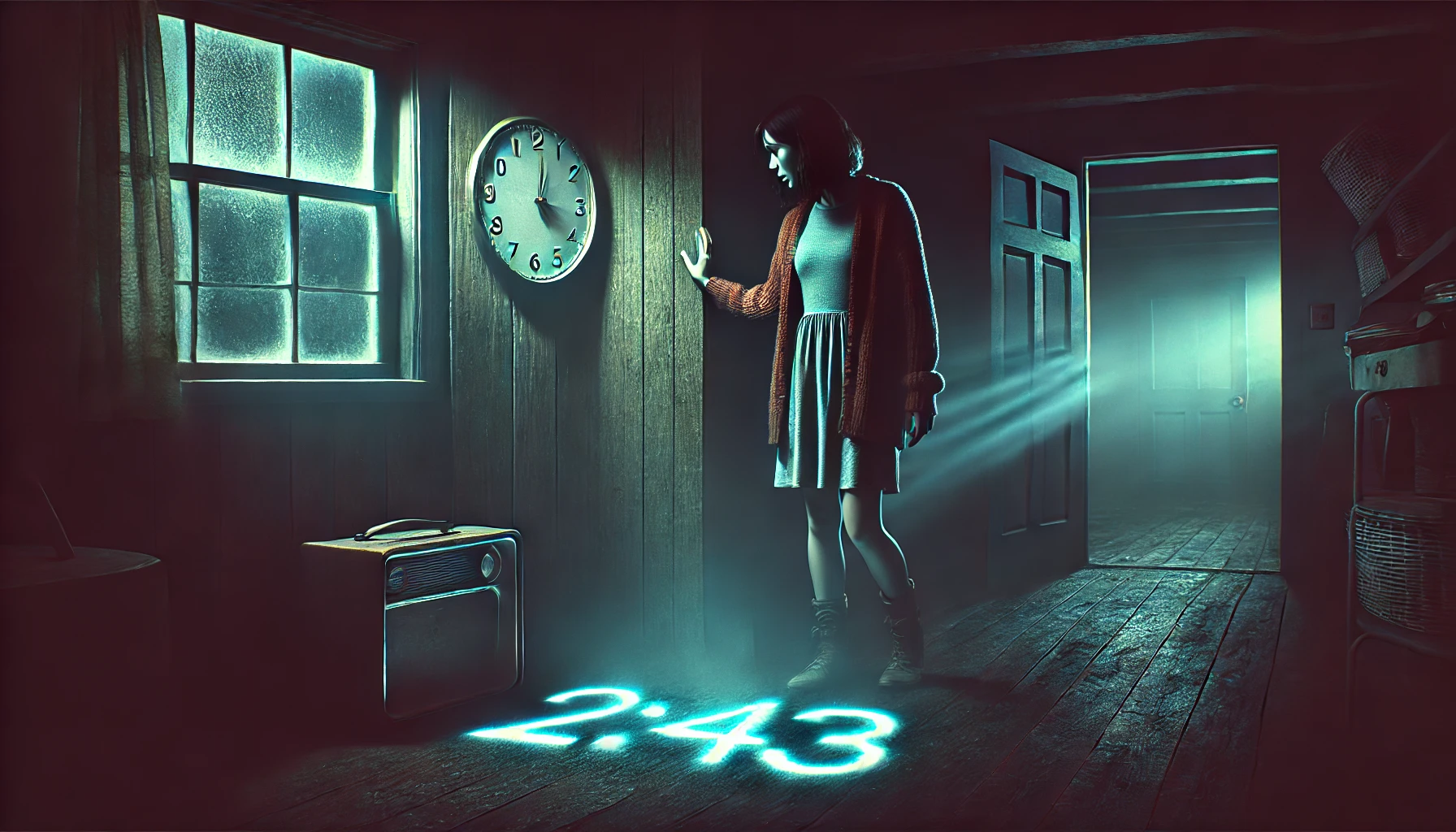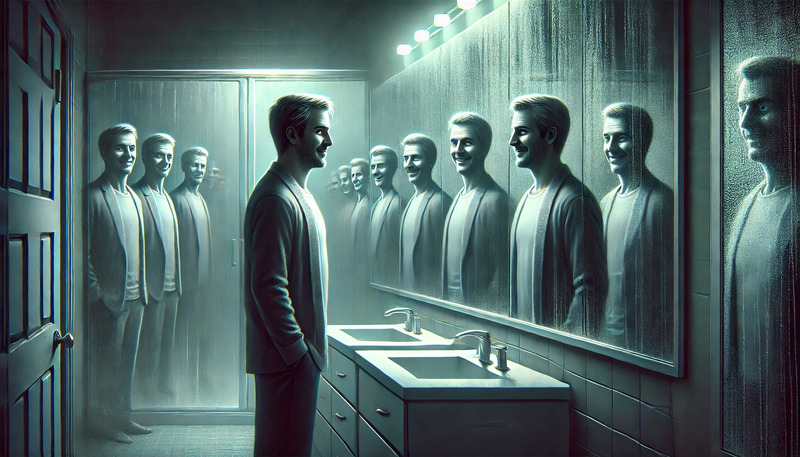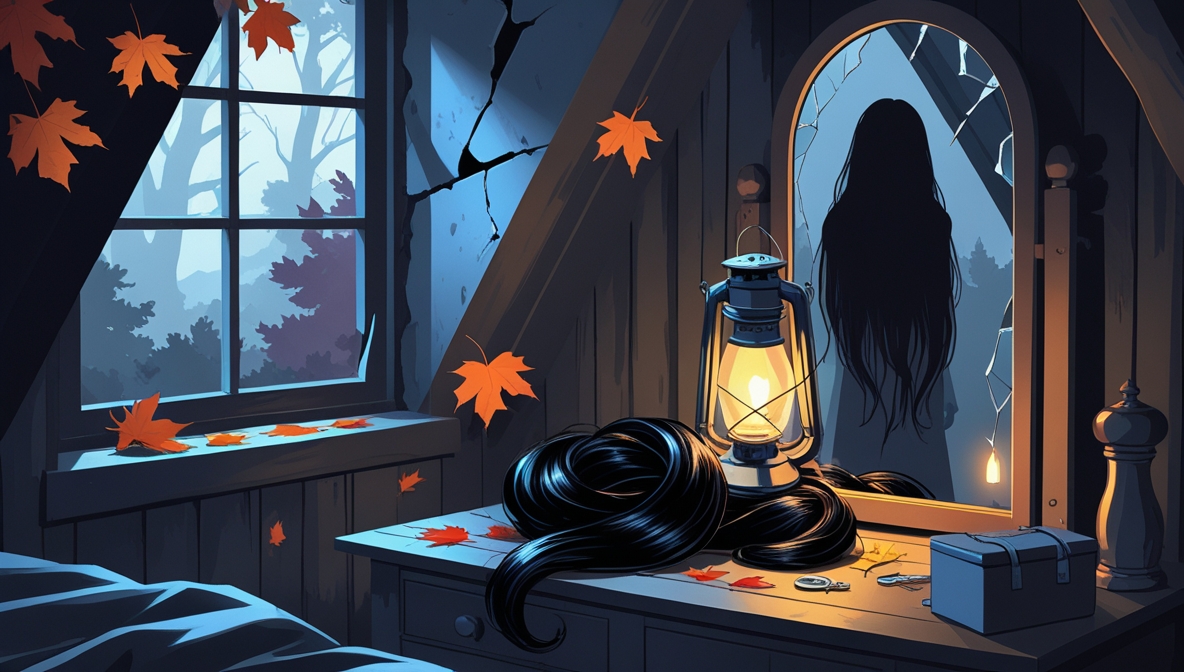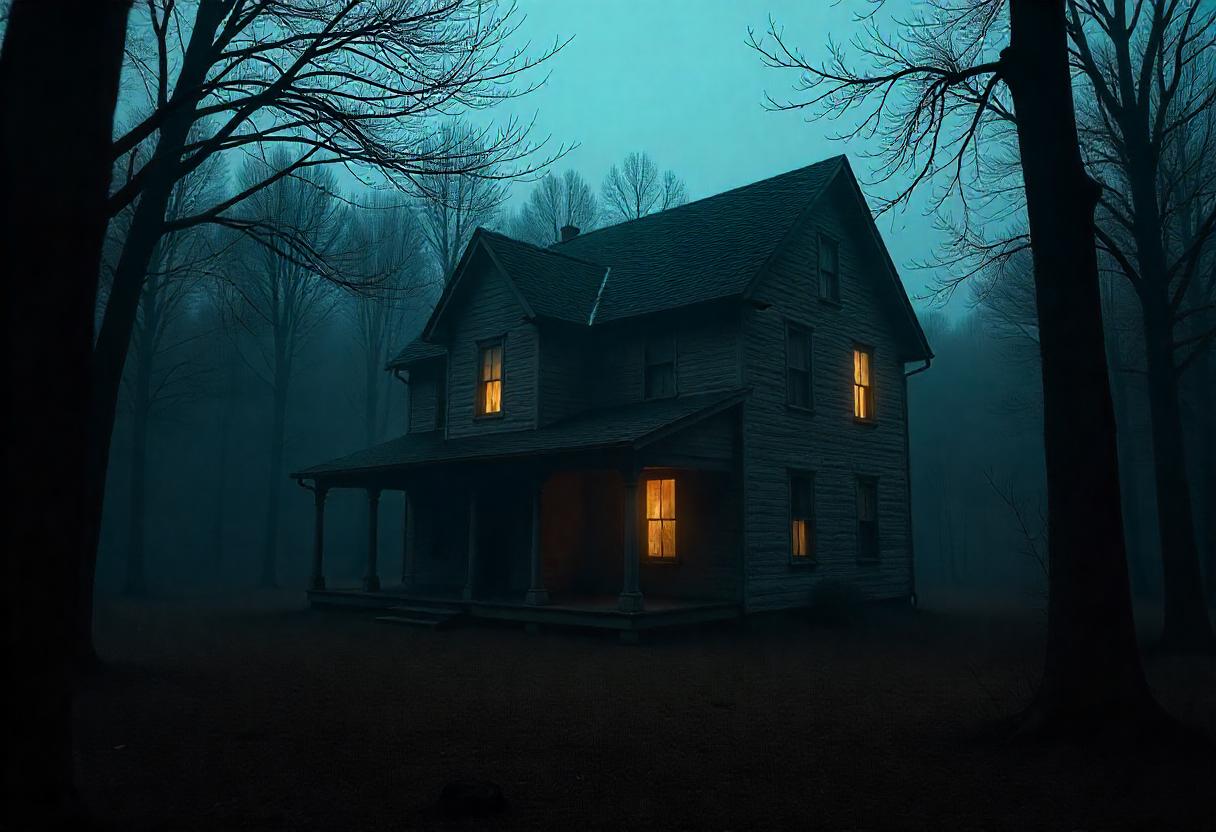
The Missing Minute
Sixteen years after her father vanished at exactly 2:43 a.m., Julia wakes to the same hum, the same glow, and the same silence. When a voice claiming to be him calls from outside, she must decide whether to open the door—or finally face what’s been waiting behind it all these years.
The clock blinked 2:43 a.m. when Julia woke to the hum.
Not the kind that comes from power lines or fridges—but one that made her teeth ache and the air feel too still.
She sat up in bed, heart already pounding. Her room was quiet, except for the rhythmic tick of the old kitchen clock her father gave her when he vanished. That was sixteen years ago—on the same date, at the same time: 2:43 a.m., August 17th.
She had memorized the police report. “No signs of forced entry. One minute unaccounted for in the home’s power log. Case unsolved.”
Outside, the night pressed against the window like held breath. The stars above her small farmhouse flickered strangely—some dimming, others pulsing like Morse code. She tried to shake the feeling that they were looking in.
The hum returned—louder now. Her phone went dark. So did the bedside lamp. But the kitchen clock ticked on.
She stood and moved toward the hallway. A pale blue glow bled under the back door. That’s where it always happened—where her father had been standing the last time she saw him.
She hesitated.
“Julia?” a voice called faintly from outside.
Her breath caught. It was his voice. The same gravel and warmth. The same exact tone he used when he called her for breakfast as a kid.
She pressed a hand to the door. “Dad?”
Silence.
Then again, but closer: “It’s okay. Time doesn’t work the way they told you.”
The door handle began to turn—from the outside.
Julia backed away. She remembered what the psychologist said when she was nine: “Trauma can manifest as echoes. Patterns that feel real but are not.”
But this wasn’t trauma. It was repetition.
She grabbed the old clock from the wall. It was still ticking—except the hands were both frozen at 2:43.
The hum crescendoed, and light poured through the cracks in the wood, like a second sunrise.
Then: a sharp knock. Not urgent. Deliberate.
She whispered, “What do you want?”
A pause.
Then: “We never left. We’re just waiting for you to open the door.”
She stared at the frozen hands of the clock. For a moment, she considered it—stepping out, finally learning what happened that night so many years ago.
But her father had always told her: “Never answer what doesn’t knock like it’s human.”
Her hand hovered over the latch.
Instead, she turned and walked to the basement—the one place the hum never reached.
As she descended, the glow faded behind her.
The hum quieted.
But on the wall above the stairs, drawn in dust she hadn’t touched in years, were the same numbers etched into the police file photo from her childhood home:
2:43
And beneath it, written by a finger that wasn’t hers:
“One more minute.”
She sat at the bottom step, the clock in her hands.
Waiting.
This time, she would watch what came through.
Not the kind that comes from power lines or fridges—but one that made her teeth ache and the air feel too still.
She sat up in bed, heart already pounding. Her room was quiet, except for the rhythmic tick of the old kitchen clock her father gave her when he vanished. That was sixteen years ago—on the same date, at the same time: 2:43 a.m., August 17th.
She had memorized the police report. “No signs of forced entry. One minute unaccounted for in the home’s power log. Case unsolved.”
Outside, the night pressed against the window like held breath. The stars above her small farmhouse flickered strangely—some dimming, others pulsing like Morse code. She tried to shake the feeling that they were looking in.
The hum returned—louder now. Her phone went dark. So did the bedside lamp. But the kitchen clock ticked on.
She stood and moved toward the hallway. A pale blue glow bled under the back door. That’s where it always happened—where her father had been standing the last time she saw him.
She hesitated.
“Julia?” a voice called faintly from outside.
Her breath caught. It was his voice. The same gravel and warmth. The same exact tone he used when he called her for breakfast as a kid.
She pressed a hand to the door. “Dad?”
Silence.
Then again, but closer: “It’s okay. Time doesn’t work the way they told you.”
The door handle began to turn—from the outside.
Julia backed away. She remembered what the psychologist said when she was nine: “Trauma can manifest as echoes. Patterns that feel real but are not.”
But this wasn’t trauma. It was repetition.
She grabbed the old clock from the wall. It was still ticking—except the hands were both frozen at 2:43.
The hum crescendoed, and light poured through the cracks in the wood, like a second sunrise.
Then: a sharp knock. Not urgent. Deliberate.
She whispered, “What do you want?”
A pause.
Then: “We never left. We’re just waiting for you to open the door.”
She stared at the frozen hands of the clock. For a moment, she considered it—stepping out, finally learning what happened that night so many years ago.
But her father had always told her: “Never answer what doesn’t knock like it’s human.”
Her hand hovered over the latch.
Instead, she turned and walked to the basement—the one place the hum never reached.
As she descended, the glow faded behind her.
The hum quieted.
But on the wall above the stairs, drawn in dust she hadn’t touched in years, were the same numbers etched into the police file photo from her childhood home:
2:43
And beneath it, written by a finger that wasn’t hers:
“One more minute.”
She sat at the bottom step, the clock in her hands.
Waiting.
This time, she would watch what came through.



Comments